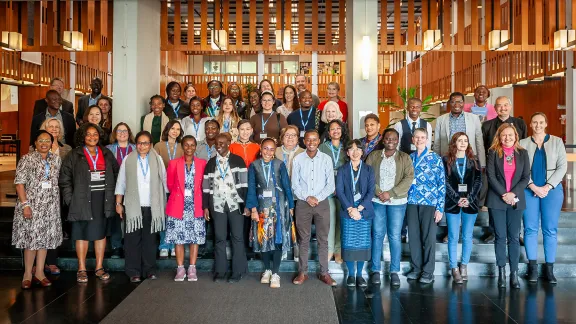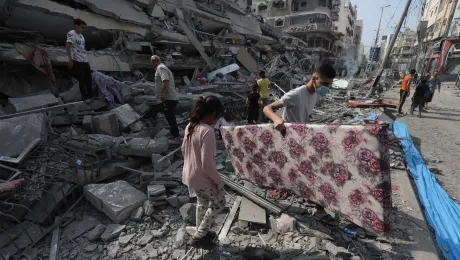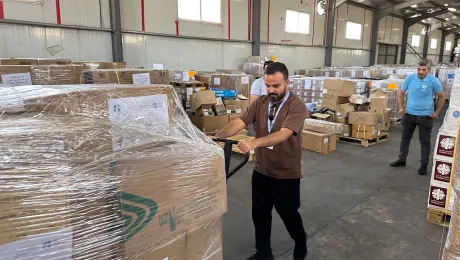A training week in Geneva for women and men working in gender justice advocacy in different parts of the world to help them connect local to global

Participants in the 2023 Women’s Human Rights Advocacy Training gathered in Geneva’s Ecumenical Center. Photo: LWF/S. Gallay
LWF and partners provide opportunity for local gender justice advocates to connect with global mechanisms
(LWI) - How to support mothers with children born of rape in conflict? How to stop sexual abuse of students in schools? How to help women enroll in seminary or college in countries where they are still expected to remain at home?
These are just some of the practical challenges facing participants in an ecumenical training on women’s human rights advocacy which is taking place in Geneva from 17 to 20 October. The Lutheran World Federation (LWF) partners with the World Council of Churches, Finn Church Aid and Norwegian Church Aid to offer the annual week-long training.
The sessions offer a unique opportunity for local gender justice advocates to learn more about United Nations mechanisms that can enhance their work. “Participants bring a wealth of skills and experiences from their national contexts,” said LWF’s Advocacy Officer for Gender Justice, Sikhonzile Ndlovu. “It is important for them to share these, to build their capacities and to connect their work from the local to regional and global levels.”
Member churches and World Service country programs
Among the participants from different churches and faith-based organizations are women and men from LWF’s member churches in Hong Kong, Indonesia, Japan, Malawi, the United States and Zimbabwe, as well as from its World Service country programs in Chad, Iraq and South Sudan.
Participants from Iraq shared the challenges of supporting women with children born from Islamic State fighters who seized parts of the country in 2014. These so called ‘ISIS families’ are often stigmatized and shunned by their families and communities. The children are regularly denied citizenship and many mothers have committed suicide, while others have been encouraged to migrate and seek a new life abroad.
Participants from various countries talked about the problems of early marriage and sexual abuse of girls, especially in remote or rural areas. Several speakers highlighted the challenge of religious texts being used to justify the subordination of women and the need for better education of pastors to break down patriarchal interpretations and promote a more gender just reading of Scripture.
During the week, the group will also visit the United Nations headquarters in Geneva to take part in a session of the Convention on the Elimination of all forms of Discrimination Against Women (CEDAW). Participants will have the opportunity to talk with CEDAW commissioners about their work and to explore ways in which this global mechanism can support their efforts to protect women and girls in their own countries.


